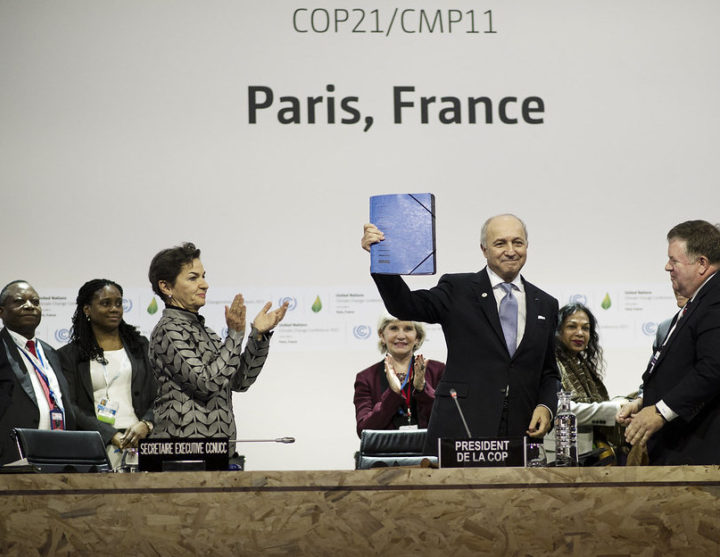The UK must lead by example to inspire reciprocal action
Success in Glasgow is contingent on the UK walking the walk at home, says Energy Institute Chief Executive Louise Kingham OBE FEI
By Kathy Grenville
Share
Last updated:

Energy professionals in my experience don’t beat around the bush. They’re engineers, technicians, scientists and economists, driven by the practicalities of keeping our homes, businesses and vehicles supplied with the power and fuels they need. I value their methodical, evidence-based view of the world because it delivers for us all day-in-day-out.
So when we survey our members every year for our Energy Barometer report, about their sector and the world around them, I listen. And when they deliver a clear message, it’s my job to tell people about it.
The UK has a strong track record as a climate leader. The Climate Change Act was in its day the first of its kind, and upgrading the target to net zero last year in line with the science put us back in the vanguard. Progress getting renewables onto and coal off Britain’s electricity grid has been astonishing. And no doubt this contributed to the UK securing the Presidency of COP26, the most important international summit on the issue since Paris.
But in our survey published this week, our members have raised some pretty serious red flags. Nine in ten of them believe that the UK is currently off track for net zero by 2050; more than half of them say we’re even off track for the target for 2030 without urgent policy action from ministers.
Numbers matter
Because, in this endeavour, numbers matter. Zero is the goal, but emissions are still only down around 40% and the hardest work is yet to be done. Dates matter too. 2050 might sound like a long time away, but the lead times for technology development and deployment are lengthy.

I’m glad to say our members also offer solutions. Before anything else, they prescribe the unfinished business of bringing our nation’s buildings up to scratch. Energy efficiency is singled out as both the biggest missed opportunity of the past decade and the foremost option for plugging the emissions reduction gap for the 2030 target at least cost.
Furthermore, in the context of COVID-19, more of our members urge retrofitting existing housing stock than any other action for a resilient recovery. It has nation-wide, job-creating potential, with long term environmental and social benefits.
In fact our members overwhelmingly support calls for ministers to use the tragic discontinuity of the pandemic as an opportunity to build back better. Four in five agree with the Committee on Climate Change (CCC) that stimulus should be channelled into green industries and jobs, and support for emissions-intensive sectors should be contingent on action on climate change.
Urgent decisions are prescribed now to bring on low carbon aviation fuels, hydrogen HGVs, heat pumps and hydrogen ready boilers and carbon capture demonstration to get us on track to deliver on net zero by 2050.
Leading by example
All of this matters for delivering on the UK’s legally binding targets, and it also matters for Glasgow and COP26 - a lot. Without immediate domestic policy steps from ministers, to quote the CCC’s Lord Deben, “the UK’s international credibility is on the line”.
Orchestrating the international ‘Race to Zero’ and the diplomacy required by it over the next year will call for every bit of credibility we can muster. Hence why leading by example is singled out by our members more than any other measure as the number one priority for maintaining the UK’s status as a climate leader.

Looking back to Paris five years ago, it was clear that COP21 president Laurent Fabius and the formidable French diplomatic machine commanded respect and were listened to.
But it’s no surprise that, as he travelled the world’s capitals building support for an ambitious deal, back at home in France the National Assembly passed the Energy Transition for Clean Growth Act. It put in place binding energy targets on transport, housing and renewable energy, with the aim of halving French energy consumption by 2050.
It signified France’s strong political commitment to mitigating climate change. How could Fabius otherwise have looked India in the eye if France was not walking the walk at home?
The same goes for the UK over the coming year. The delay to COP26 bought breathing space but the test will come not on the international stage in November 2021, but five months earlier in June next year when the CCC reports again on domestic progress.
The world has entrusted the UK with COP26. Only with ambitious clean energy action at home can we repay that trust and inspire reciprocal action from countries around the world.
The Energy Institute’s Energy Barometer 2020 can be found at www.energyinst.org/barometer/2020
Share